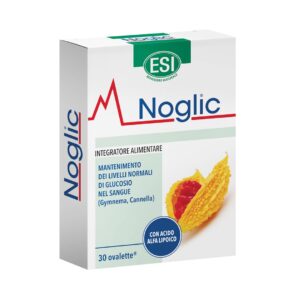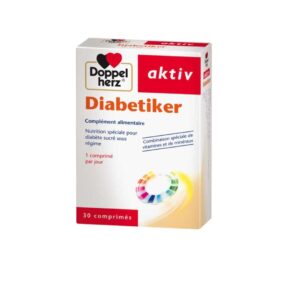Diabetes -what you should know about this diesease
What is diabetes?
Diabetes is a common chronic pathology. People from different countries, different ages and different races suffer from this disease. Having diabetes can be hard and simple at the same time. The most important thing to know is that you may treat it and have a normal life.
Diabetes is a metabolic disease that causes high blood sugar. We eat different foods and the majority of them contain sugar. Insulin is a hormone produced by pancreas. It is responsible for the transport of sugar from the blood into the cells, where it can be stored or used for energy. The problem begins at the moment that your body does not produce insulin enough or when insulin can not be used properly.
How many types of diabetes exist?
There are different types of diabetes, but the most common ones are:
- Diabetes type 1 (10% of the diabetic patients suffer from this form of diabetes)
This type is an autoimmune disease. The immune system attacks and destroys cells in the pancreas so they do not produce insulin. It is not known exactly what causes this type of diabetes. It can be a genetic cause, a virus or something else.


- Diabetes type 2 (the most common type of diabetes)
Diabetes type 2 happens when your body does not use insulin properly. It is the most common type of diabetes. Genetic and lifestyle can affect this condition.


- Gestational diabetes
Sometimes during pregnancy the body becomes less sensitive to insulin. A pregnant woman tend to have high blood sugar levels. This does not happen to all of pregnant woman and it resolves after giving birth.
What is prediabetes?
Prediabetes is the border between the normal condition and diabetes.
In a normal person the blood sugar level should be between 70 and 99 mg/dL. When the blood sugar level is more than 100 mg/dL but less than 125mg/dL it is called prediabetes.
This condition does not require medication but a healthy diet and physical activity.
When a person has prediabetes it has blood levels higher than usual, but not so high as diabetes.
Can you treat diabetes?
Diabetes can be treated. The treatment is based on the type of diabetes a person is suffering from:
If a person has diabetes type 1 the use of insulin is needed. Insulin is normally injected to keep normal blood sugar levels. There are different types of insulin:
- long acting insulin;
- rapid insulin;
- intermediate insulin;
- regular insulin.
A person can use one or more than one type of insulin based on his/her condition. The type of insulin, the dosage, the frequency is prescribed by the doctor.
For diabetes type 2 the treatment is a bit different. There are different class of medications used orally that can help a person have a normal blood sugar level.
Based on the efficacy and side effects of each class of medication your doctor will prescribe what he/she thinks is best for you. Sometimes insulin can be used to normalize the blood sugar level.
The importance of the diet
A person that suffers from diabetes, should be very careful about the foods that he eats. Having a normal blood sugar level is very important to avoid the complications such as heart diseases.
A person with diabetes can live a normal life, but for this some sacrifices should be made.
Doing physical activity and having a healthy diet helps to control blood sugar.
Diet means eating healthy foods in moderate amounts.
To make things easier for you we are going to mention some foods that do not increase your blood sugar levels.
- Leafy greens – are low in calories and nutritious at the same time. They do not affect blood sugar levels and are a good source of vitamins, minerals including vitamin C.
- Fish such as salmon, sardines, mackerel are a good source of omega-3 fatty acids. Omega-3 fatty acids have a lot of benefits for the body, but most importantly for the heart.
- Avocado – is an ideal snack: high in fibers, low in carbohydrates, high in healthy fats.
- Chia seeds – are high in fibers and low in digestible carbs. They help you to reduce weight because reduce hunger.
- Beans have a very low index of carbohydrates, but are rich in B vitamins, minerals and fiber.
- Broccoli is a very delicious vegetable. One study found out that eating broccoli helps lower blood sugar levels.
- Extra virgin olive oil – improves glycemic management, has antioxidant properties, reduce triglycerides level.
How to take care of yourself or a family member who suffers from diabetes?
When a person gets diagnosed with diabetes the first questions he has in mind are:
- How this disease is going to affect my life?
- Can I continue doing my daily activities as before?
- Can I monitor my blood sugar levels at home, or i should go to the hospital everyday?
- What other health conditions am i going to have?
The first thing to be done is: stay calm. Do not freak out, do not stress about it.
Focus on the problem and try to find the best solution. Discuss with a family member and with your doctor all the questions that you have. Only in this way you are going to find the best answers.
Everyone may have diabetes: a family member may have it, a neighbor, a colleague or a person that you do not know has it. You are not alone.
After you get diagnosed with diabetes you should:
- take the medication prescribed by your doctor regularly;
- start a healthy diet;
- avoid eating a lot of carbs;
- avoid alcohol;
- do physical activity;
- monitor your blood sugar levels daily.
Monitor your blood glucose at different times throughout the day. Good times to check include before and 2 hours after meals.
Follow this steps for a proper measurement:
Here are some supplements that help control blood sugar:
-
Product on saleEsi Noglic
970.00L824.50L -15% -
ATC Çaj Anti-diabetik Bio190.00L
-
Product on saleDoppelherz Diabetiker
1,104.90L883.92L -20%
Source:
https://www.webmd.com/diabetes/ss/slideshow-best-diabetes-diets
https://www.medicalnewstoday.com/articles/323627#outlook
https://www.healthline.com/nutrition/16-best-foods-for-diabetics#takeaway





